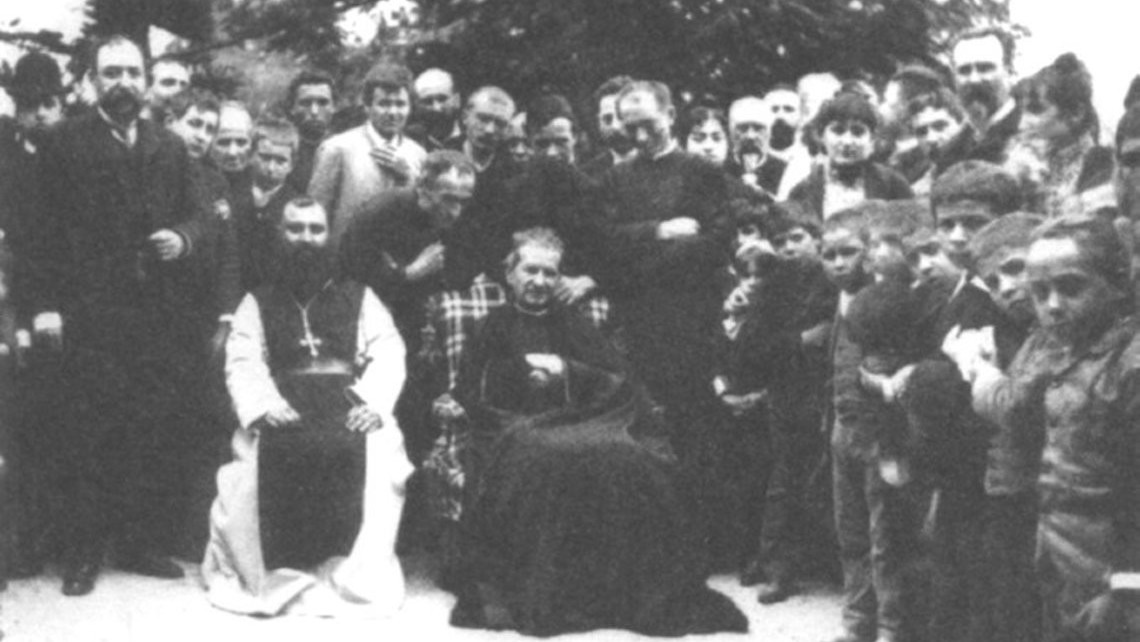
Imagine for a moment that you’re a Catholic school teacher and you suddenly realize that all of your students have a very high value of themselves. And, upon realizing this fascinating phenomenon you also realize that the majority of yours students do not associate this high value with the image the carry as children of God. Gasp! For those of us who have had the pleasure of studying and applying the educational system of St. John Bosco (Preventive System), this sudden realization may not sound so daunting.
St. John Bosco was in short one of the greatest teachers of the Catholic faith, especially in reaching the young men of his day. His proving ground was the very difficult streets of Turin, Italy where the theological virtue of charity was more hoped for than seen on a daily basis. Knowing the environment he had to work with Don Bosco made it his aim for “his boys” to see themselves as children of God. He desired to “save their souls.”
There was no miscommunication on St. John Bosco’s part to reach the souls of these boys. Because of his direct, stern, yet loving approach many children were taken aback on how direct he was towards them a “fight fire with fire” approach but with Christ at the center.
The Preventive System and the Narcissistic Child
So how would St. John Bosco deal with a group of unruly narcissistic Children? The Preventive System is an approach based on three core principles: Reason, Religion, and Kindness. Each principle has a specific point to bring the child closer to Christ.
The Principle of Reason provides a reasonable atmosphere where the child would be given the opportunity to consent to instruction and guidance. The goal of this first principle is to develop good Christians and useful citizens. The teacher must be the bridge to a child’s discovery of the world through patience, diligence, and prayer.
The Principle of Religion stressed the ugliness of sin and the value of living a virtuous life. The aim is to develop the intellectual and physical gifts the child possesses and how he can be directed toward a greater good. There are five steps within this principle to help youth attain personal holiness:
1. Holiness of ordinary life
2. The joy and optimism of holiness
3. Centrality of Confession
4. The Holy Eucharist
5. Love of Mary
The Principle of Kindness emphasizes the virtue of love. St. John Bosco would stress: “Let us make ourselves loved, and we shall possess their hearts.” In other words, our Christian witness must be constant for the development of the child. The learning environment should be warm and inviting, not cold. The family spirit reigned; he did this through rapport, friendliness, presence, respect, attention, dedication to service, and personal responsibility.
The core of all three principles of the Preventive System is to draw the child away from a view that only he exists and no one else. As the last principle stressed; “the family spirit reigned.” We want the child to know that he is part of God’s plan by the very fact he was created in His image and likeness. This in turn will help the child view others in the same light.
What made St. John Bosco’s methods so effective was his willingness to go into the heart of the child regardless of his state in life and see Christ in him. Wisdom tells us these methods not only served St. John Bosco well; they can also reawaken our relationship with Christ. The goal is to foster productive Catholic citizens who seek to assist others before themselves. When teaching others about his preventive system St. John Bosco would always remind his students: “Get them to love you and they’ll follow you anywhere.”
St. John Bosco, patron of all Catechists and Youth, pray for us!






